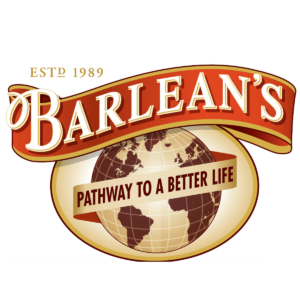 The BART Foundation aims to promote better outcomes for brain injury survivors by answering three questions – which alternative therapies are likely to work, where can they be found, and how can they be afforded? One of the ways we fulfill our mission is by carefully watching global research and clinical trial outcomes and sharing that information, in user-friendly language, with the TBI/ABI community.
The BART Foundation aims to promote better outcomes for brain injury survivors by answering three questions – which alternative therapies are likely to work, where can they be found, and how can they be afforded? One of the ways we fulfill our mission is by carefully watching global research and clinical trial outcomes and sharing that information, in user-friendly language, with the TBI/ABI community.
Omega 3 oil supplementation is one of the safe alternative therapies that we at the BART Foundation believe may result in better outcomes for brain injury survivors, and this recent research article supports this therapy’s use and is applicable to both the TBI/ABI community and the wider population.
Long-term users of omega-3 fatty acid supplements had a 64% reduced risk for Alzheimer’s disease.
 The following article recently appeared on Healio, a website that publishes news and research for medical professionals in the health care system. While it does not speak directly to the TBI/ABI community, it reinforces the evidence that supplementing with omega-3 fatty acids helps reduce the risk for cognitive decline.
The following article recently appeared on Healio, a website that publishes news and research for medical professionals in the health care system. While it does not speak directly to the TBI/ABI community, it reinforces the evidence that supplementing with omega-3 fatty acids helps reduce the risk for cognitive decline.
In the article, Wei Xu, MD, Ph.D., of the neurology department at Qingdao Municipal Hospital Group in China and associate editor of the Journal of Alzheimer’s Disease, explained that patients with Alzheimer’s disease tend to have lower concentrations of omega-3 fatty acids compared with cognitively healthy individuals. Therefore, taking regular supplements or undergoing omega-3-oriented dietary interventions “could be promising approaches to lowering dementia risk, especially for those at high genetic risk.” Xu and colleagues conducted a study to better understand the longitudinal relationships of omega-3 polyunsaturated fatty acids intake as well as blood biomarkers with the risk for cognitive decline, dementia or Alzheimer’s disease during a 6-year follow-up.
The researchers evaluated data from 1,135 participants with a mean age of 73 years who did not have dementia in the Alzheimer’s Disease Neuroimaging Initiative (ADNI) cohort. Then they conducted causal dose-response analyses and a meta-analysis on 48 longitudinal studies involving 103,651 participants.
Xu and colleagues found that long-term supplementation or dietary intake of omega-3 fatty acid might reduce the risk for cognitive decline or Alzheimer’s disease. In the ADNI cohort studied, those who were long-term users of omega-3 fatty acid supplements showed a 64% reduced risk for Alzheimer’s disease. Additionally, each increment of 0.1 g per day of DHA or EPA intake was linked to between an 8% and 9.9% lower risk for cognitive decline.
“In the present study, we found that supplemental omega-3 fatty acid use was significantly associated with a lower risk of AD,” Xu said. “Our meta-analysis findings strengthened the association of dietary omega-3 fatty acid intake and its peripheral biomarkers with risk of Alzheimer’s disease, dementia or cognitive decline.”
Omega-3 Fish Oils: a Safe Alternative Therapy for All
 Omega-3 fish oils are one of the safe, alternative therapies the BART Foundation believes may help brain injury survivors. Dr. Michael Lewis, a thought leader in this area of research, recommends only using fish oils that have been double distilled, and preferably reconstituted in their original triglyceride form. In a recent video interview with The BART Foundation, Dr. Lewis explains how Omega 3 oils help the brain recover. Dr. Lewis advocates for Omega-3’s use, under a physician’s supervision, as a treatment for a range of acquired brain injuries.
Omega-3 fish oils are one of the safe, alternative therapies the BART Foundation believes may help brain injury survivors. Dr. Michael Lewis, a thought leader in this area of research, recommends only using fish oils that have been double distilled, and preferably reconstituted in their original triglyceride form. In a recent video interview with The BART Foundation, Dr. Lewis explains how Omega 3 oils help the brain recover. Dr. Lewis advocates for Omega-3’s use, under a physician’s supervision, as a treatment for a range of acquired brain injuries.
Barlean’s Oils, a source of premium quality essential oils, has generously agreed to make its oils available at a steep discount to ABI survivors who find themselves on a tight budget. Details of this unique charitable program, including how one qualifies for the discount, are available from Barlean’s at 1-800-445-FLAX. Be sure to mention “The BART Foundation’s Discount” when you speak with a customer service representative.
